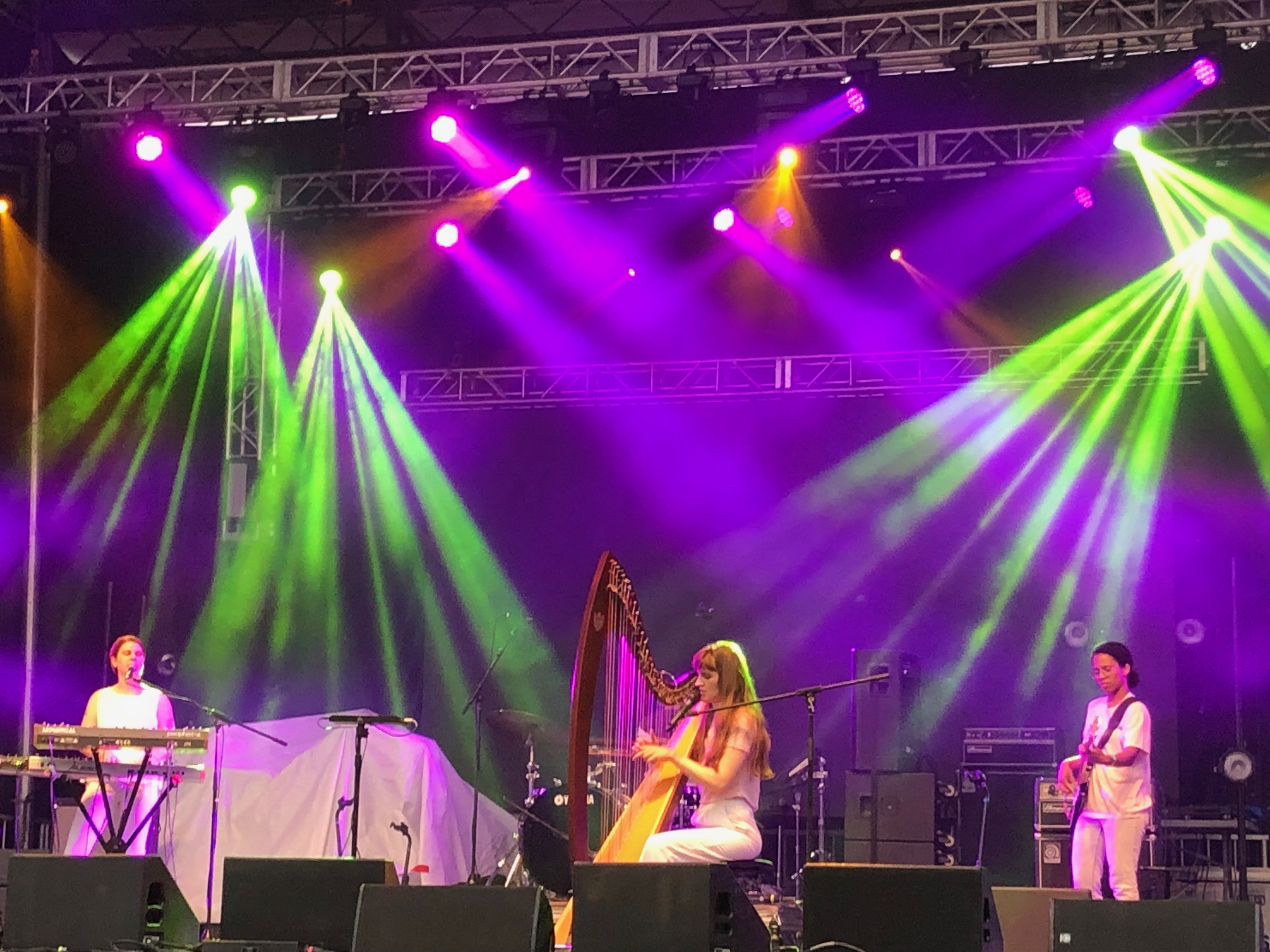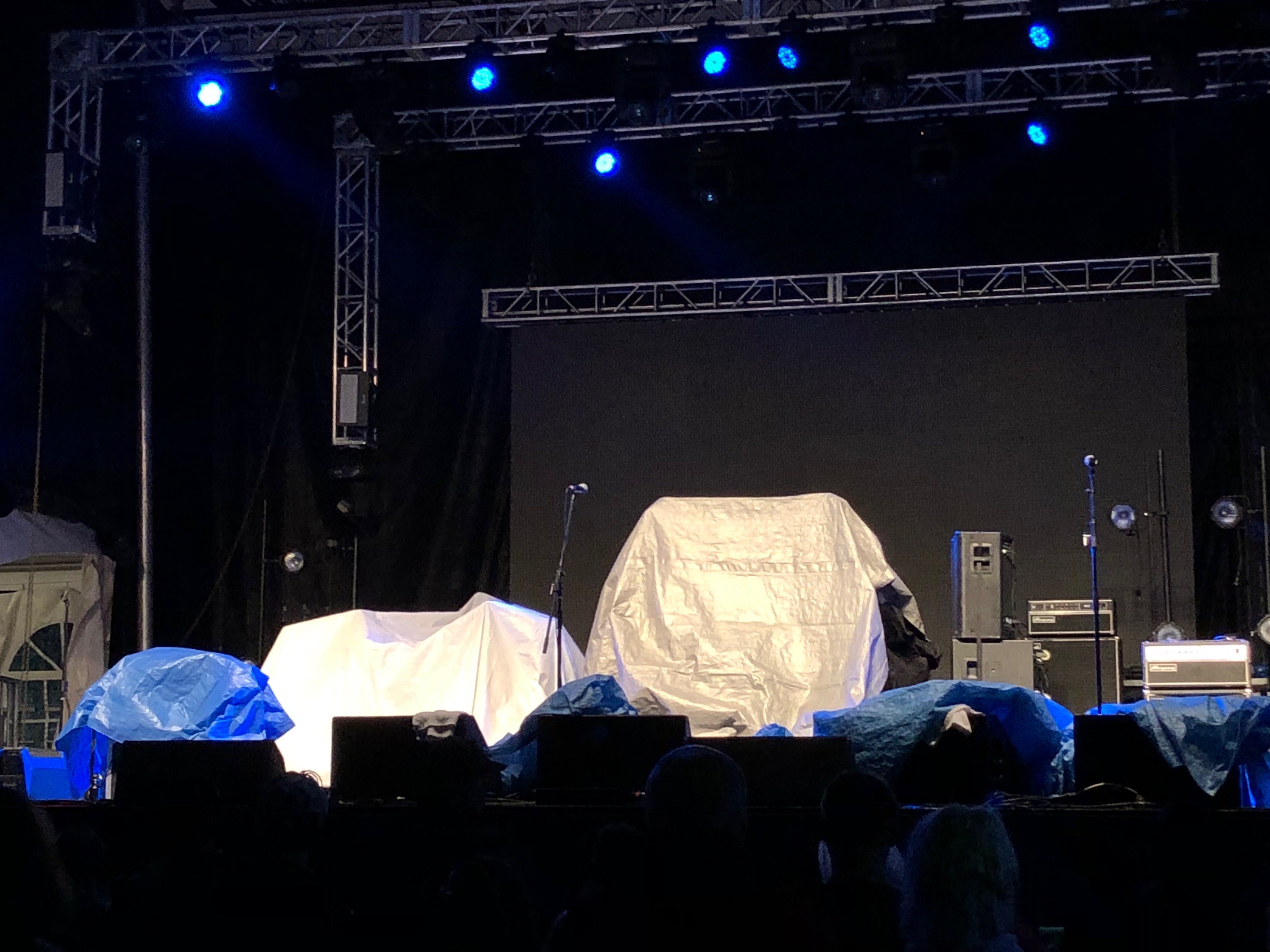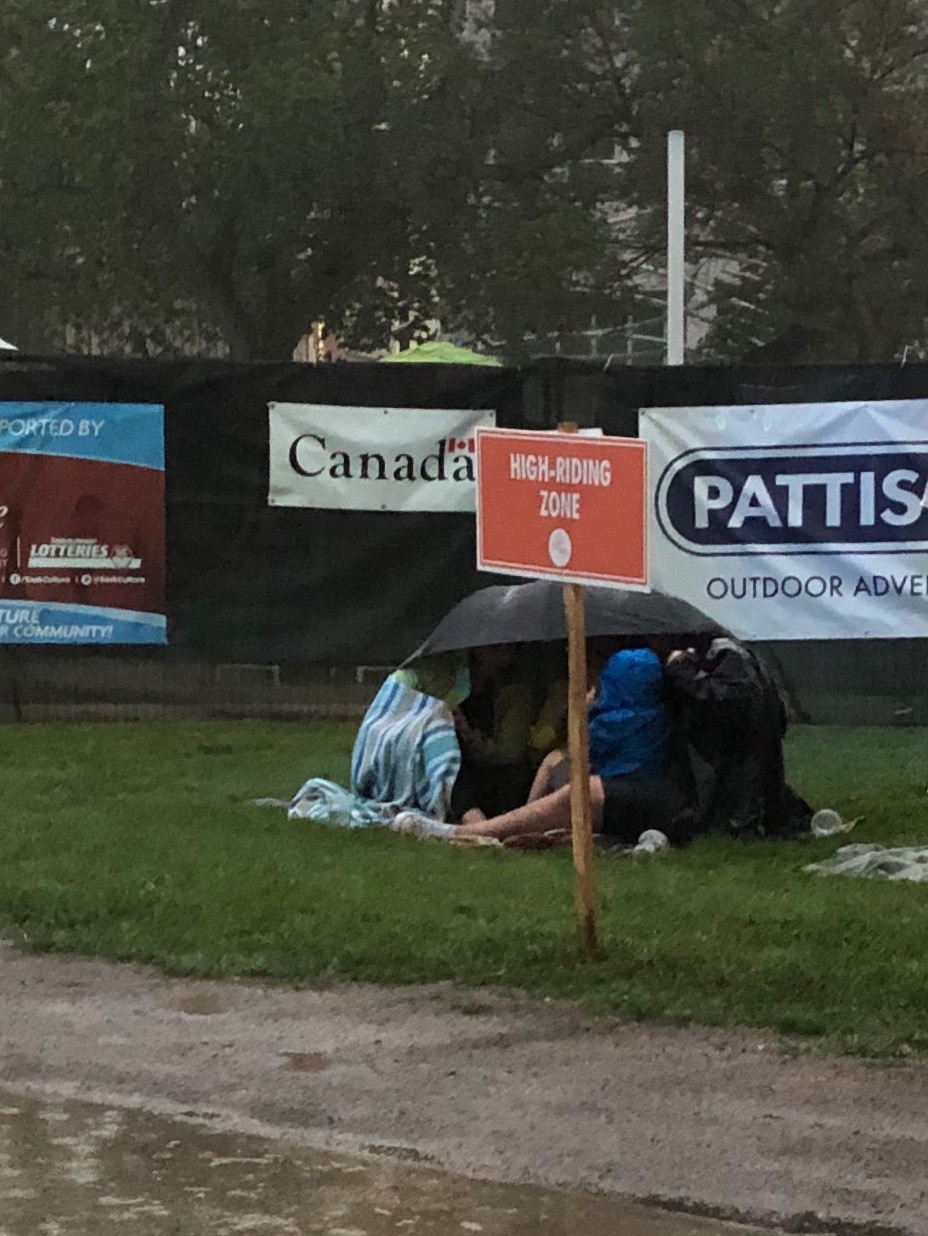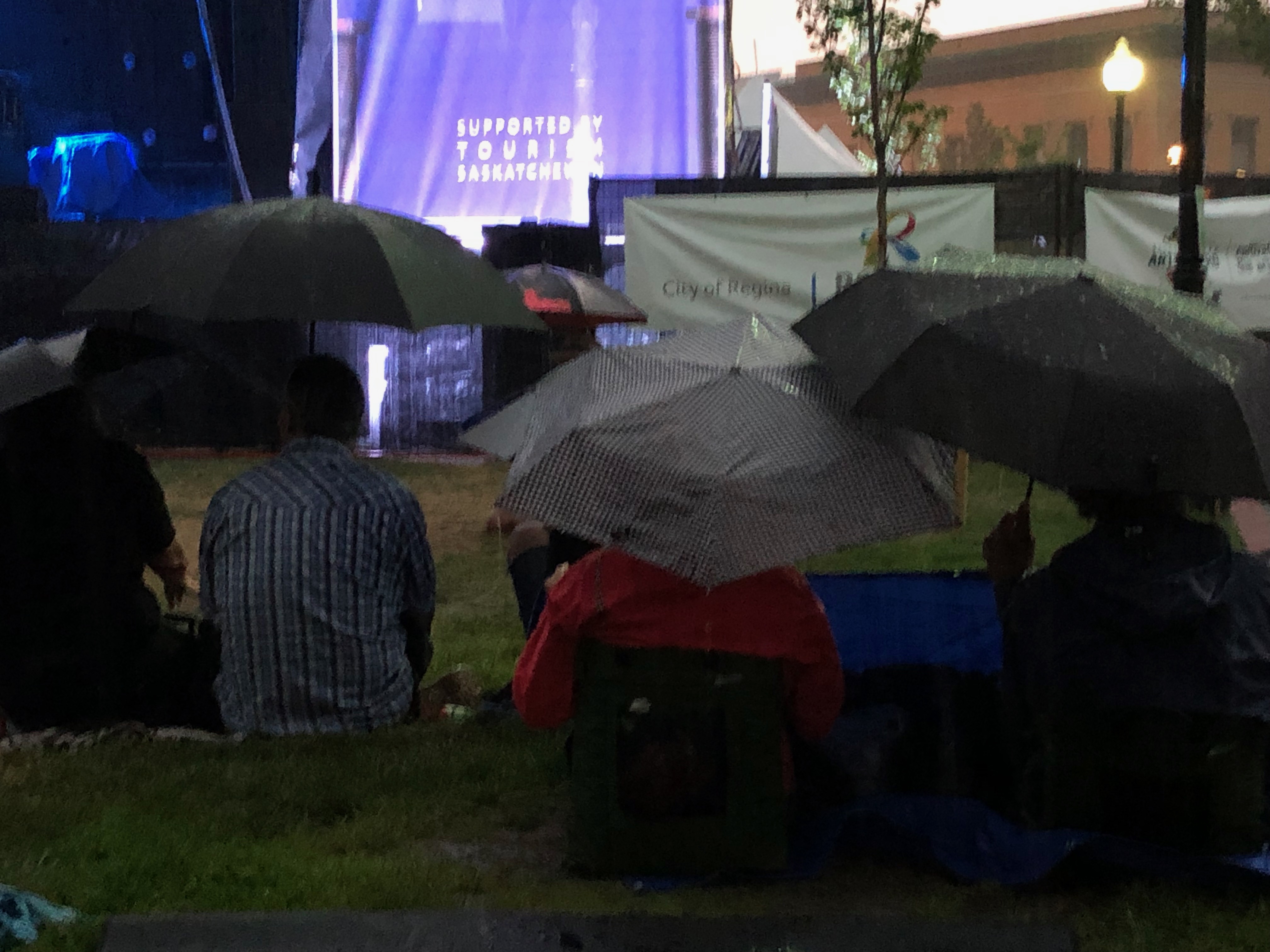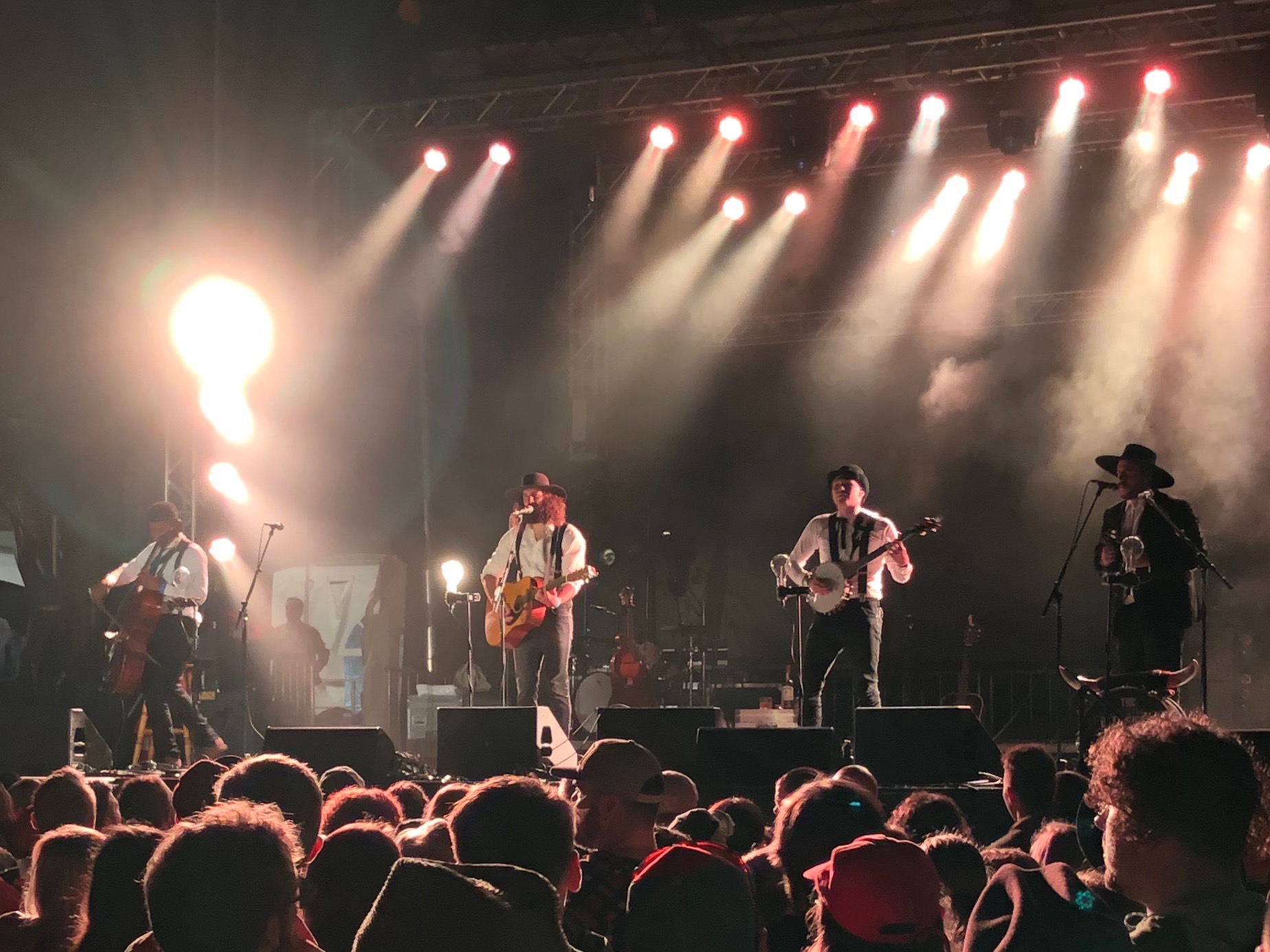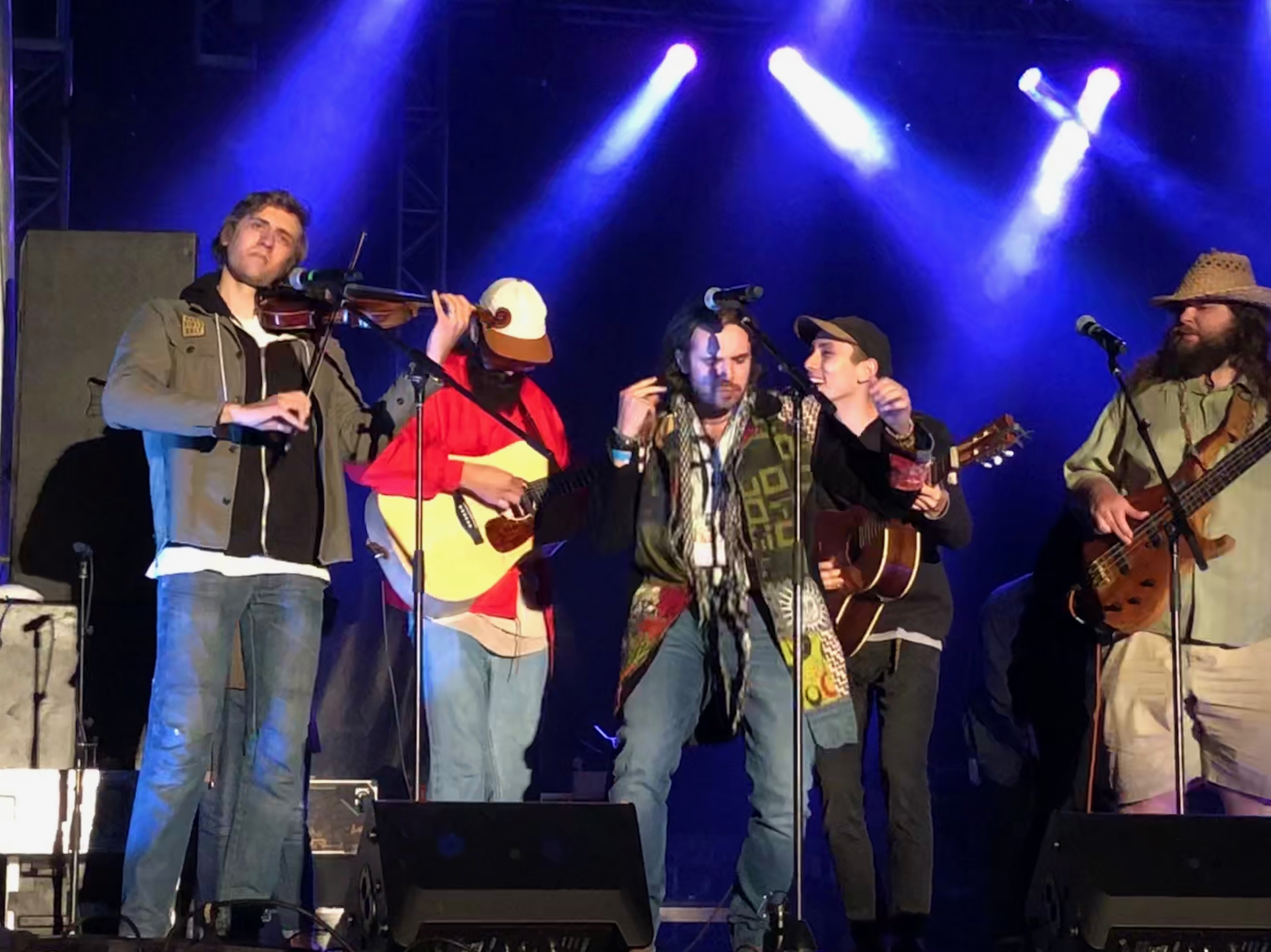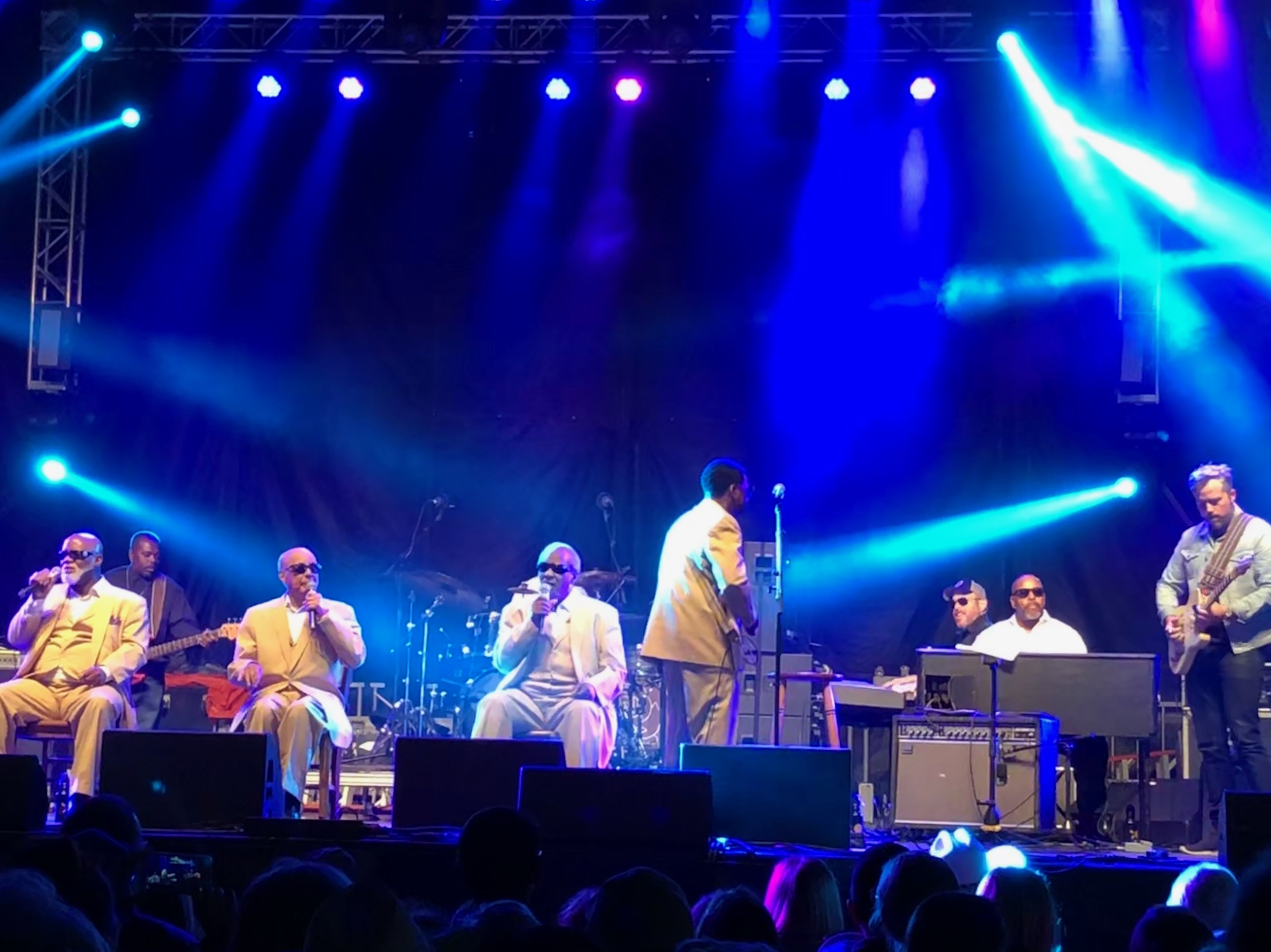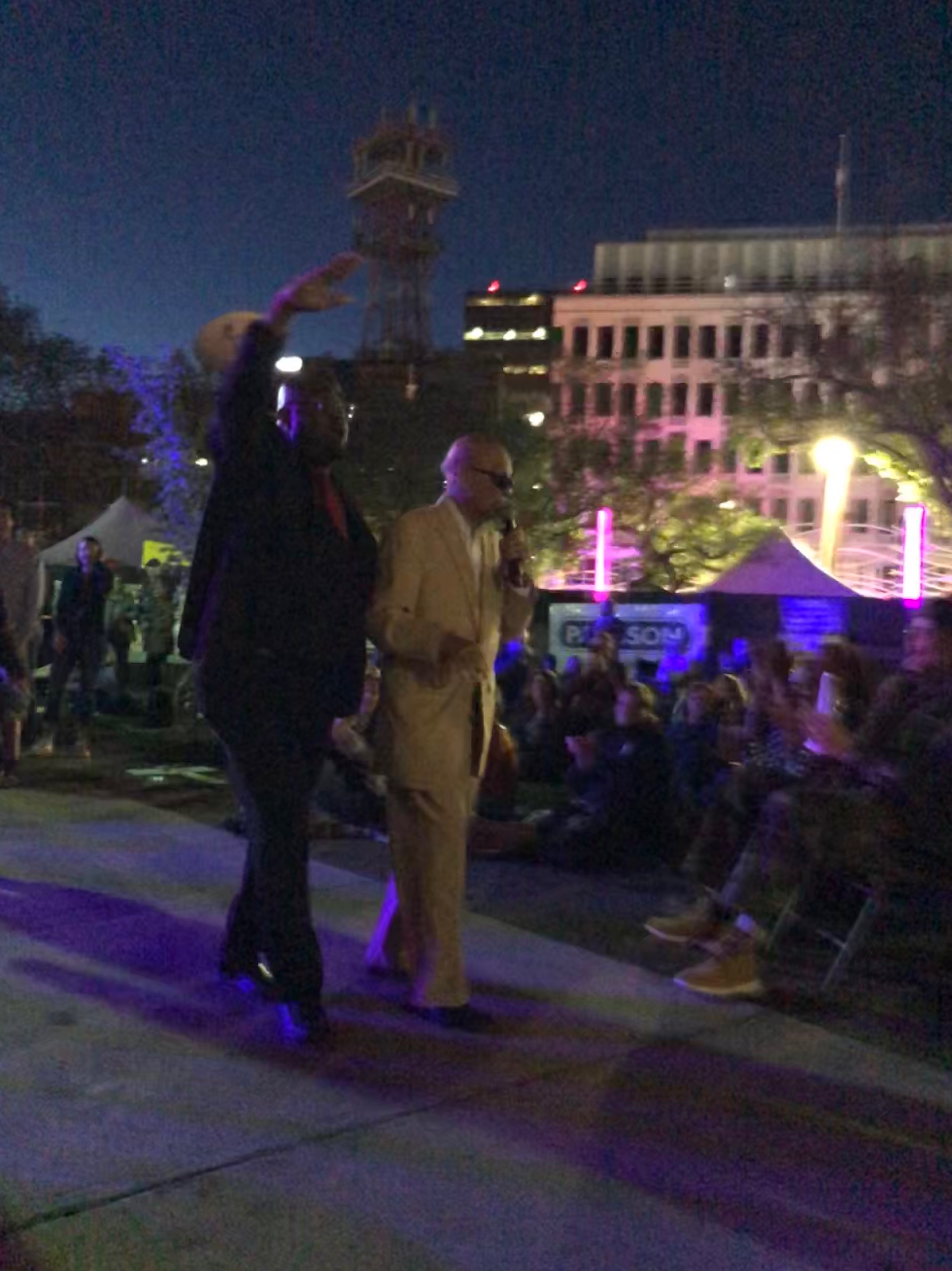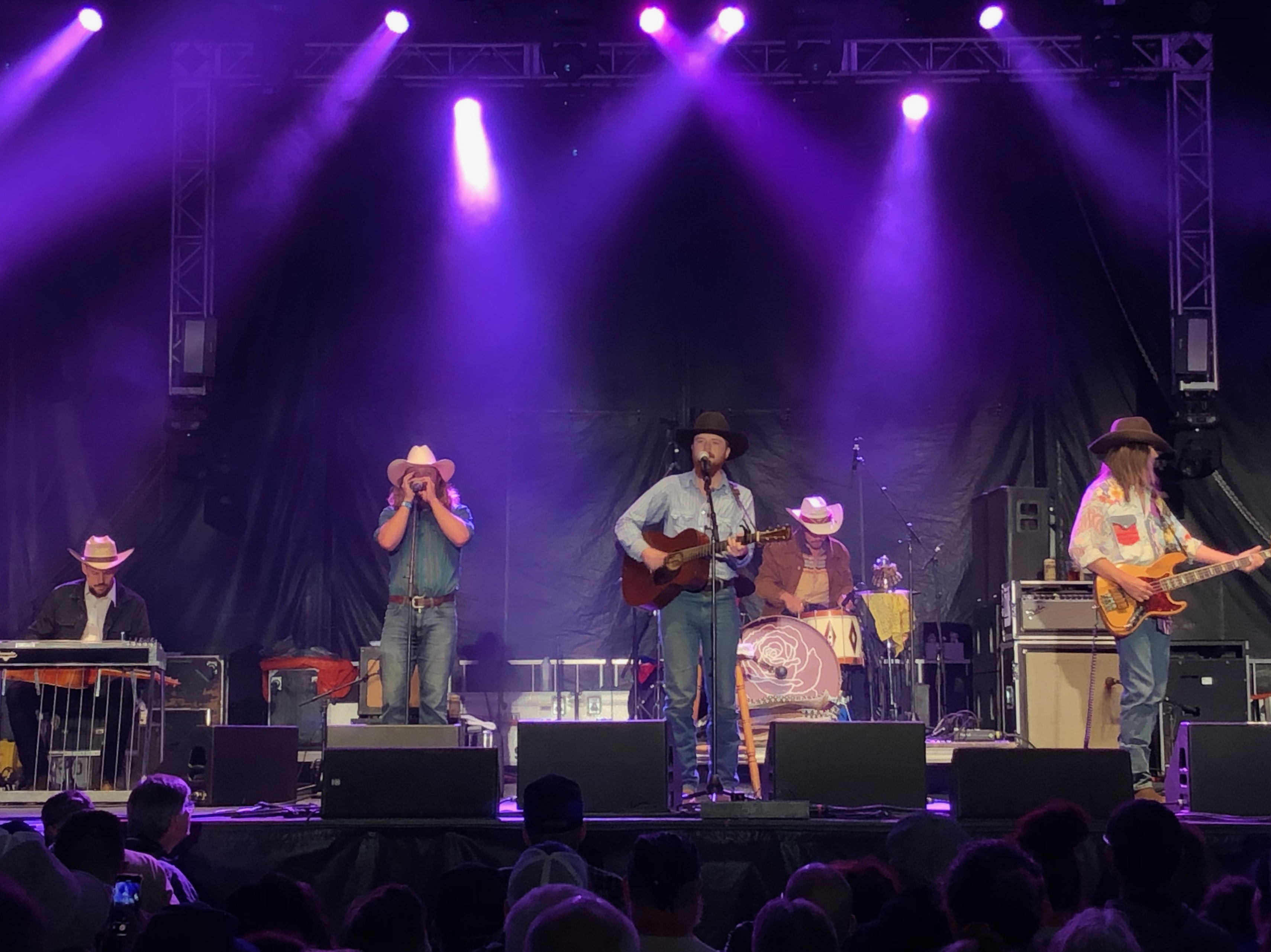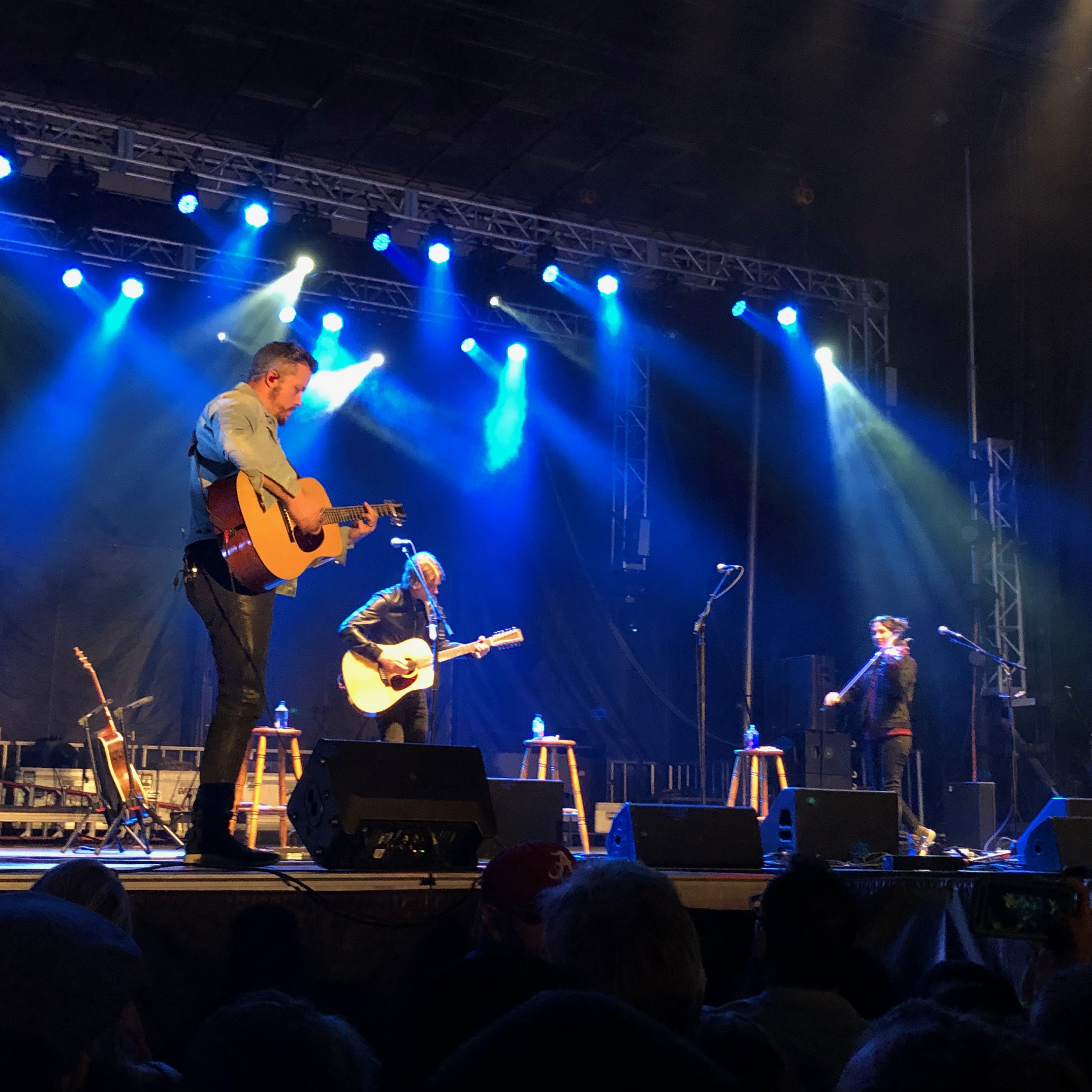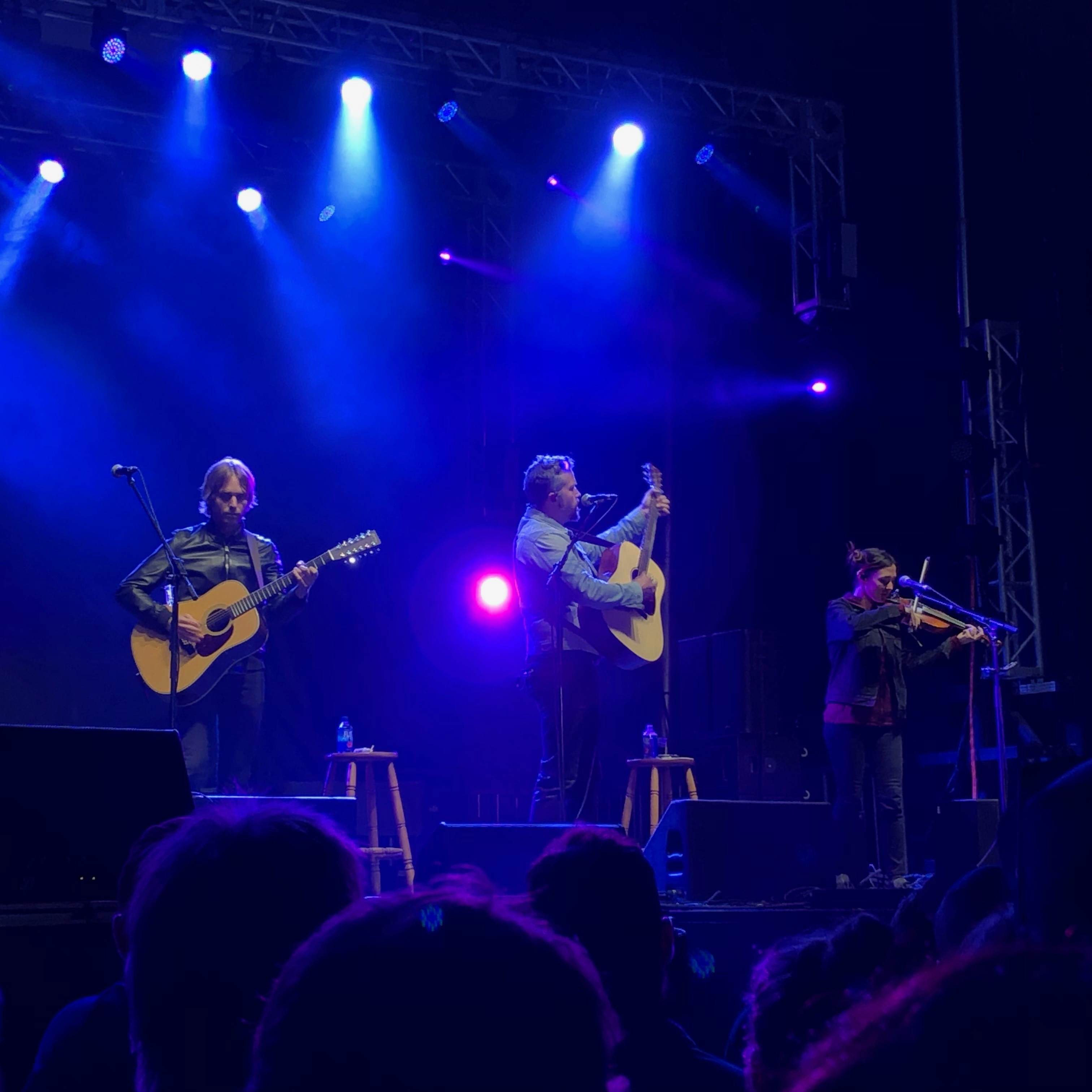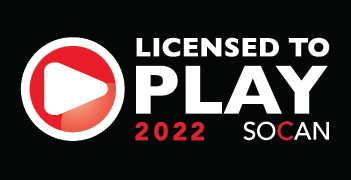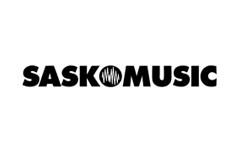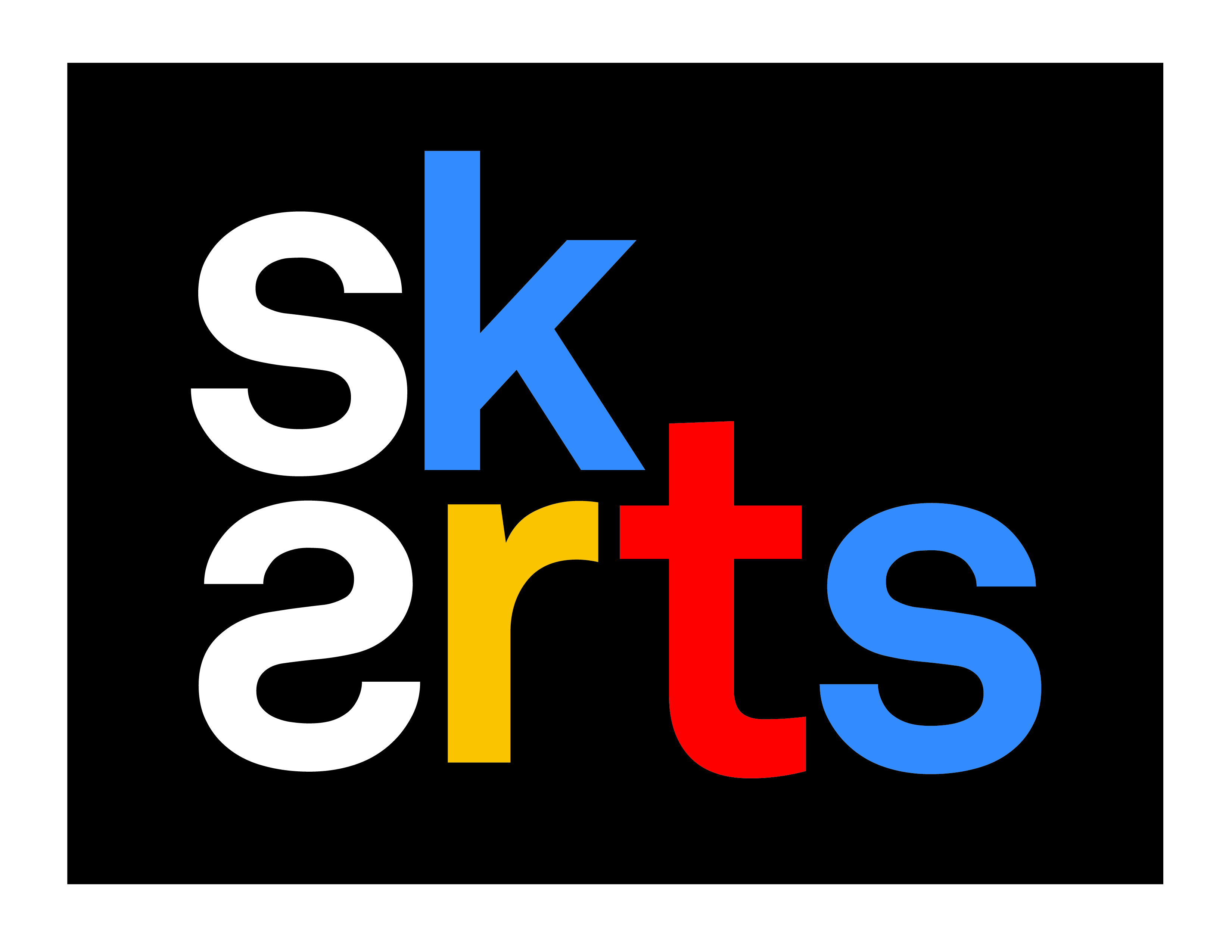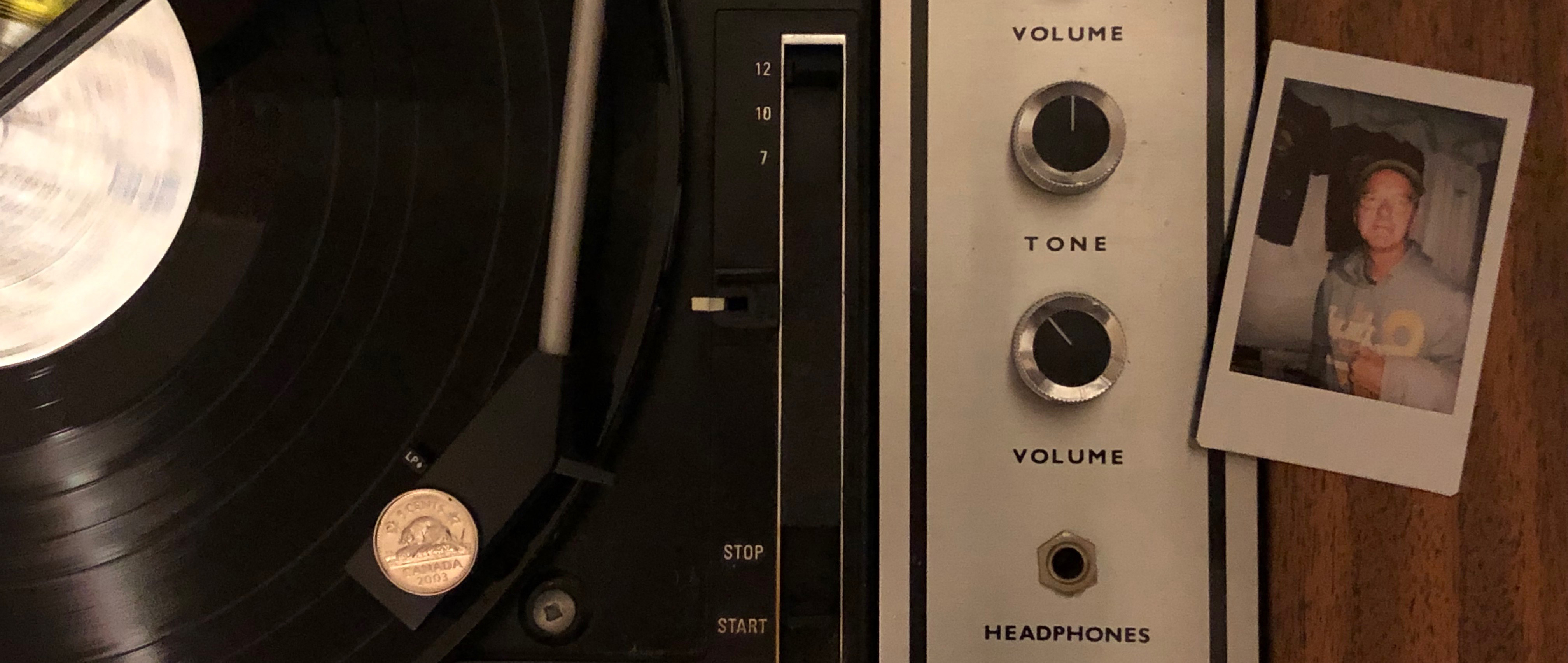
Words and photos by Darryl "The Reverend" Dozlaw, Host of Green Eggs & Ham (Thursdays, 8-10am)
The evening before leaving to attend the 50th annual Regina Folk Festival, I spent some time viewing my 10-year-old copy of the 40th Anniversary Edition of Michael Wadleigh’s Woodstock film. It was interesting to me that this event that had been heralded as a kind of definitive moment for the emerging subculture of the day happened the same summer as Regina’s first Folk Festival. I guess there was something in the air in the summer of 1969.
The 2019 edition of the Regina Folk Festival boasted an exciting line-up. With various collaborative workshops taking place on the festival grounds in Regina’s Victoria Park during the days, the three evenings on the Main Stage featured exciting headliners such as A Tribe Called Red (Friday), Jason Isbell (Saturday) and Blue Rodeo (Sunday). In addition to these larger names, acts like Weaves, Bahamas, The Dead South, Blind Boys of Alabama, Colter Wall, Kathleen Edwards, The North Sound and others, would be providing Main Stage sets with a host of wonderful ‘Tweeners’ (mini-sets between larger acts) such as The WON'Ts, Connie Kaldor, Anna Haverstock, Megan Nash, Les Barricades, and more tying it all together. There were even two fabulously innovative pre-festival binaural headphone shows by Close Talker.
As I type this, I have a copy of the original Woodstock album playing on an old BSR record changer behind me. If one were to compile a soundtrack to go with a film on this year’s Regina Folk Festival similar to the Woodstock record, it would be merely a sampler with many brilliant performances included and so many more left out. Still, it would be diverse and interesting.
RFF LP Side 1:
On Friday night, Emilie Kahn quipped early in her set that "the jokes about the harp going out of tune are true." Sometimes solo with the harp and sometimes with her 3-piece combo supporting her, her charming, breathy delivery was immediately reminiscent of Kristy Thirsk or Lou Rhodes. The grace with which she dealt with a looper glitch that brought one of her friend’s favourite songs to a sudden halt seemed to be characteristic of who she is as a performer.
Weaves would only have a single song on the record to represent their involvement on the festival's Main Stage. While they presented a blistering after-hours show and numerous collaborative workshop spots (most notably for me, the magical Saturday afternoon set with Afrotronix), at the end of the first song of their Main Stage set, the show was halted due to a thunderous deluge that would run things for the next two hours. Festival-goers were encouraged to find shelter from the storm at the local mall and check social media for updates. When they all returned to their overturned chairs and tarps at approximately 9:45, the Tweener shows for the evening had been sacrificed to get the final three bands onstage as efficiently as possible.
The thunderstorm that played the Main Stage for a spell-binding two hour set on Friday night was arguably one of the best shows of the Festival, if you like that kind of thing.
The challenge for local boys The Dead South was to rally the crowd of intrepid storm survivors and transform it into an audience. They did this with the swagger and confidence of a hometown band that has returned to tell stories of the great big world outside. With their show, The Dead South saved Friday night, stealing it back from the elements that had presumed to be the night’s big story. Also, their placement in the running order directly following the storm maximized the impact of their music. Anyone who had been dialled in to a controversy surrounding the lyrics of their opening song probably forgot about it long enough to enjoy the infectious groove of the banjo and bass drum. Did they remove or change the offending lyrics? I can’t remember and others I spoke with afterward couldn’t either. Maybe don’t include "Banjo Odyssey" on the Folk Festival soundtrack album, keep us all guessing and put "In Hell I’ll Be In Good Company" on there instead.
After the entertaining appearance of ‘Nymphinity: the first non-binary Disney princess’ (Stephen Jackman-Torkoff, Friday’s winsome emcee), Bahamas hit the stage with what Saskatoon musician Aaron Karpinka described as ‘slippery lightning’ guitar licks, supported by two singing sirens and a chill band. Bahamas is the perfectly uncomplicated master of the perfect fifth, 2-3 note hook. The high point of his set was probably his song "Opening Act (The Shooby Dooby Song)," predictably eliciting cheers with the insertion of ‘Regina FolkFest’ into the lyrics. It’s a big show in a small city, that’s what you do.
Apart from all the mud under everyone’s feet, by the time A Tribe Called Red hit the stage with their DJ-hiphop/multi-media social commentary joint, the crowd had forgotten all about the storm that had threatened to rob everyone of the festival experience earlier. Friday night’s headliners had the crowd on its feet dancing from the very beginning of the set. With traditional and hiphop dancing, ironic video loops of William Shatner dressed in buckskins and paint, the DeLorean chase from Back To The Future III and the like, ATCR reminded the crowd that while the common 20thC depiction of the Indigenous peoples of North America was caricatured, filled with stereotypes, this is a new century and more truthful representation is required for reconciliation to take place in this land. Remixing Buffy Sainte-Marie’s "Working For the Government," and Keith Secola’s "NDN Cars" among other songs, ATCR’s set ran from end-to-end without a break, so the trick to selecting a soundtrack excerpt would require working out just when to fade in and when to fade out again.
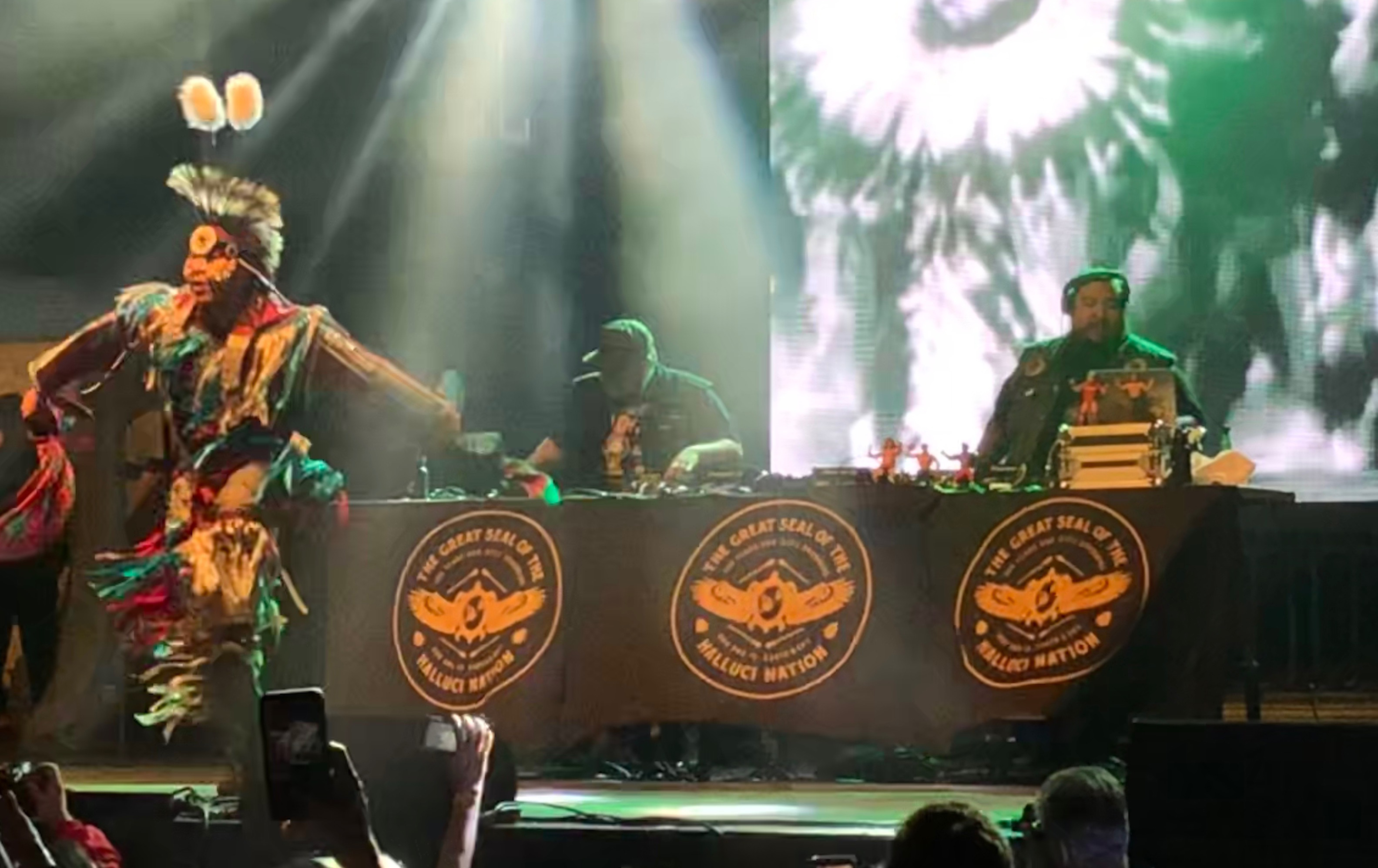
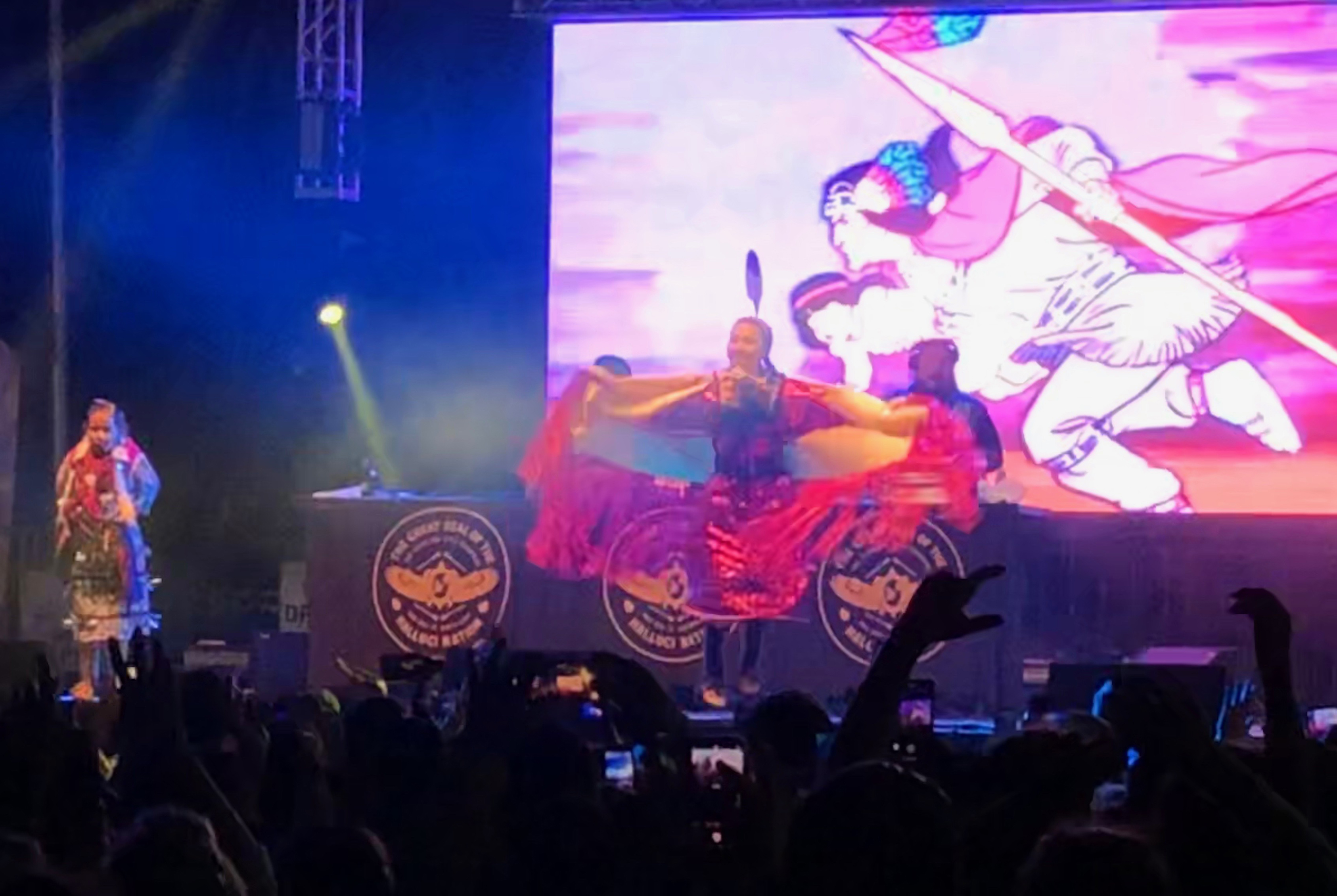
And there was evening and there was morning: the first day.
RFF LP Side 2:
While every session/workshop/live set began with a Treaty acknowledgement (which is increasingly becoming standard practice for most public gatherings), what makes the RFF particularly endearing is the attitude of inclusion. Whether on the afternoon workshop stages or the Main Stage in the evening, there is richly diverse representation of so many voices: Francophone, Indigenous, African-Canadian, LGBTQ2S+, Latin, Children, Seniors, etc. A member from the Queer Songbook Orchestra was heard reflecting upon how the RFF was the first event that they had been invited to play that wasn’t specifically a PRIDE or otherwise self-identifying Queer event, and how affirming it was to just be one of the acts at a folk festival. It’s exciting to see how an event like RFF changes in order to embody "Folk" as music by the people and for the people.
So, if Friday night’s Main Stage lineup seemed a little monochromatic until the end, Saturday’s started with diversity. Argentinian Sofia Viola brought her thrilling blend of latin passion, creative energy and a taste for the surreal to the Main Stage for the first set of the evening. Whether it was through shaking the hair wrap from her head during the high point of a song, pulling on a luchador mask, emoting with guttural vocal sounds, soprano fireworks or kazoo camp, she kept the growing crowd engaged as her showmanship upstaged her diminutive physical presence. Pick a song, they were all exciting.
While following someone like Sofia would be difficult for anyone, Ruth B’s set didn’t really stand a chance placed between Sophia Viola and The Blind Boys of Alabama. Her songs were solid and her performance was pitch perfect, carrying with it a warm intimacy that was showcased by the keyboard/sequencer/guitar looper arrangements of her lone instrumentalist. However, even with a rather clever cover of Coldplay’s "Yellow" and the performance of her giant hit single at the end, Ruth B’s set just wasn’t… interesting. Certainly not like everything else had been or would be that evening.
Many of the Tweener sets on Saturday night were very strong, and kept things moving. The WON’Ts, a Regina surf band headed up by Carl Johnson of Library Voices fame, were slipped into Quantum Tangle’s slot. Mildly exhausted having performed Friday’s after-hours stage and three Saturday workshops, they performed a playful acoustic set. Les Barricades, a 5-piece Montreal ‘gypsy-pop’ outfit led by the showy Gabriel Campagne, required only three songs to capture the singalong heart of the crowd. Folle Avoine, a Campagne family band featuring members of Hart-Rouge and some relatives (sans Gabriel) reminded everyone that music is something that can foster a special family connection… especially if everybody can find their place within a glorious 4-part harmony.
The Blind Boys of Alabama’s chairs, set onstage in orderly, almost choir-loftish rows, suggested that something special was coming. When the group appeared, all wearing matching suits, it was clear that what was about to happen was not so much a performance as a gospel church service which invited engagement and offered inspiration in ways that only seem to happen beneath the big tent of gospel music. Many standards ("People Get Ready," "Do Lord" and others) were offered without feeling like covers somehow. However, it was a rendition of Norman Greenbaum’s "Spirit In The Sky," followed shortly by "Amazing Grace" to the chords of "House of the Rising Sun" that turned the temperature up, especially when Jason Isbell came forward with an electric guitar and began to musically confess. Frontman Jimmy Carter left the stage in the final number in order to move through the assembly. Can I get a witness?
If The Blind Boys of Alabama musically cleansed the darkened souls of the festival crowd, Colter Wall’s lyrics were a temptation, reminding everyone of how sweet the crazy outlaw life can be. It was interesting to note how different his comments between songs sounded from the resonant, gravelly baritone that delivered the words to those songs. The thing about shapeshifters is how tough it can be to discern which form is the real person and which is the trick. Bringing his brand of cowboy songs old and new, Colter Wall’s stage persona was hardly the whiskey-for-breakfast, lost dog that growls on his records. He walked humbly, dodging controversy while still courting it a bit with comments like "I got into a little trouble awhile back so I’ll just say thank you for choosing to come tonight." (alluding to some recent Twitter noise). "Motorcycle" would be the obvious choice for a festival soundtrack, with its references to an Arlo Guthrie song. Arlo was, of course, just a pup like Colter Wall when he played Woodstock 50 years ago.
While Jason Isbell fans would have known what to expect, his trim 3-piece lineup for the Saturday night headliner set at Regina Folk Fest was surprising. What Isbell did was treat the crowd to a thrilling show of musical sharing between three fabulous musical friends: Isbell on guitar, his wife Amanda Shires on fiddle, and their friend Sadler Vaden on guitar, and all three sang. Isbell’s genre being one that doesn’t typically draw my attention, I was basically hearing all of his music for the first time. His lyrical prowess as a songwriter kept me engaged as he and his cohort played for over an hour, covering much of his 2017 album along with a sampling of his back catalogue, arranged to play to the independent and collective strengths of his trio. Isbell’s warmth, humour and empowering approach to performance made this final act a different kind of climax to the evening. I drove home listening to "Last of My Kind" on repeat.
And there was evening and there was morning: the second day.
On the third day, I rested. I took in a few more collaborative workshops in the park before heading back to Saskatoon. The Main Stage shows, culminating with a performance by The North Sound followed by veteran headliners Blue Rodeo, would have to go on without me.
But two out of three ain’t bad, and a double album is a pricey thing to produce anyway.

